As we have seen, any permanent resident can obtain citizenship through the naturalization process. However, What are the requirements for U.S. citizenship? What is the naturalization process like? Today we will solve these doubts so that you can start your application informed and avoid inconveniences.
At Zava Immigration Law Group we know that the immigration system can be complex. That is why our attorneys are committed to helping you navigate through each of these processes. Don’t risk your future by facing these challenges on your own. Tell us about your case and take the first step towards your life in the United States.
Table Of Contents
Requirements for U.S. Citizenship
While any lawful permanent resident may apply for the naturalization process, there are other requirements for U.S. citizenship. These are:
- Have been a permanent resident for at least 5 years (or 3 years if married to a U.S. citizen ). Or be in one of the following categories:
- Be married to a U.S. citizen.
- Serve or have served in the U.S. Armed Forces.
- Be the child of a U.S. citizen (either your biological or adopted child).
- Born in U.S. territory (depending on your particular case).
- Be at least 18 years of age at the time of application.
- Be of good moral character.
- Demonstrate basic knowledge of the English language and U.S. civics.

Other Pathways to U.S. Citizenship
Beyond the requirements for U.S. citizenship, there are other legal avenues that could lead to naturalization. Some of the most common are:
- Employment-based immigrant visas: Some immigrant visas, such as the EB-5 investor visa, can lead to permanent residency and eventually citizenship if certain investment and job creation requirements are met.
- Family-based immigrant visas: By being sponsored by a close relative who is a U.S. citizen or lawful permanent resident, you can obtain an immigrant visa that could eventually lead to citizenship.
- Refugee or asylee visas: Refugees and asylees who are admitted to the United States may apply for permanent residence after one year and, thereafter, may apply for citizenship.
- Visa Lottery: The Visa Lottery provides opportunities for citizens of countries with low rates of immigration to the United States to obtain an immigrant visa, which can lead to permanent residency and then citizenship if the requirements are met.
- Temporary work visas: Some temporary work visas, such as the H-1B visa for skilled workers, can open the path to permanent residency and eventually citizenship if a U.S. employer is willing to sponsor your application.
- U Visa: Victims of certain crimes who cooperate with U.S. authorities may be eligible for the U Visa, which can lead to permanent residency and eventually citizenship.
- T Visa: Victims of human trafficking who cooperate with U.S. authorities may be eligible for the T Visa, which can lead to permanent residency and eventually citizenship.
- Juvenile Visa (SIJS): If a minor is designated as eligible for SIJS by a family court, he or she may apply for permanent residence and eventually qualify for U.S. citizenship if eligible.
Please note that each of these visas has its particular requirements and processes. Therefore, it is best to seek the help of an immigration attorney to guide you to the best option for your case. At Zava Immigration Law Group we can help you. Speak to an attorney today and take the first step toward U.S. citizenship.
Documentation required to obtain U.S. Citizenship
In the following chart you will find all the necessary documentation to obtain U.S. citizenship through the naturalization process:
| Required Document | Details |
| Photocopy of Permanent Resident Card | Both sides of the card. In case of loss, copy of receipt of Form I-90. |
| Application for Naturalization | Form N-400 |
| Payment of Fees | Check or money order for application fees and biometric services. Credit card payment is also accepted. |
| Photographs (if residing outside the U.S.) | Two identical color photos with name and alien registration number written in pencil. |
| Military Service Certificate (if applicable) | Form N-426 |
| Proof of U.S. Ties (if traveled for more than 6 months) | IRS tax transcripts, rent receipts, pay stubs, among others. |
| Proof of Financial Support (if you have dependents outside the home) | Court or government orders, payment receipts, letters from parents or guardians, among others. |
| Legal Documentation for Arrests or Convictions | Confirmation of no charges or arrest and disposition records, conviction records, evidence of completion of sentence. |
| Tax Documents (if applicable) | IRS correspondence, payment agreements, and tax payment status documentation. |
| Disability Exception (if applicable) | Form N-648 completed by a licensed medical professional. |
| Selective Service Registration (if applicable) | Selective Service Status Information Letter for men over 26 years of age who lived in the U.S. |
Consider that you may need additional documents depending on the particularities of your case. Therefore, it is best to find an immigration attorney to assist you in the process. At Zava Immigration Law Group we can help you. Talk to a lawyer and let’s get your papers in order.
How to become a U.S. citizen?
We already know the requirements for U.S. citizenship. Now, how to become a U.S. citizen? Here is a step-by-step guide to the process:
Step 1: Determine your Eligibility for Naturalization
First, verify whether you are a U.S. citizen by birth or naturalization and check that you meet the requirements for U.S. citizenship listed above. You can consult Form N-600 or N-600K for more information.
Step 2: Download and complete Form N-400
Once you meet the requirements for U.S. Citizenship download and complete Form N-400 and gather the supporting documentation. This form is the first step in the formal application, so be sure to review this document thoroughly before submitting it.
Step 3: Biometrics Appointment
Once you submit Form N-400, you will be asked to attend a scheduled appointment for fingerprinting and photography. Once completed, you must wait for notification of your naturalization interview with a USCIS officer.
Step 4: Naturalization Interview
Once your biometrics are collected, schedule an interview with USCIS. Your information and documentation will be verified, and you will be tested in English and U.S. civics. If you do not pass these tests, you must repeat the interview.
Step 5: Await USCIS Decision
After the interview with the USCIS officer, all you have to do is wait for the agency’s decision. It will send you a written notice of approval or denial of your Form N-400.

Please note that this process can be difficult and additional instances may arise. Therefore, it is extremely important to seek the assistance of an attorney. At Zava Immigration Law Group we can help you through every step of this complicated process. Contact us and take the first step towards U.S. citizenship.
Tips to Navigate the Naturalization Process Easily
While the naturalization process may seem easy at first glance, it has its complications and any errors in your application could lead to delays and problems. So here are some tips to help you navigate the process easily.
Read the instructions for Form N-400
Form N-400 is the first step in the naturalization process. Therefore, you should take care to complete it properly and be clear in your answers to avoid any kind of error. To do this, it is best to read and follow the instructions of Form N-400.
Take the practice exams as many times as necessary
USCIS offers an online tool so you can practice for the civics test. This is a practice assessment that will test your knowledge of U.S. history and government. The practice exam is available in Spanish, but please note that you will be tested entirely in English.

Stay informed
In the naturalization test some answers may change due to elections or political appointments. Therefore, it is important that you know the most current answers to the questions and answer them with the name of the officer serving at the time of your eligibility interview with USCIS.
Exceptions to examinations
While the English and civics test is a requirement for U.S. citizenship, some individuals may be exempt if they meet the following requirements:
- If you have a medical disability, you may be exempt from one or both tests.
- If you are 50 years of age or older and have lived in the United States as a lawful permanent resident for at least 20 years at the time of your application, you are exempt from the English language test but must take the civics test in your language or with an interpreter.
- If you are 55 years of age or older and have lived in the United States as a lawful permanent resident for at least 15 years at the time of your application, you are exempt from the English language test but must take the civics test in your language or with an interpreter.
- If you have 65 years of age or older and has lived in the United States as a lawful permanent resident for at least 20 years at the time of application, is exempt from the English language test but must take the civics test with the aid of specific forms provided by the administration. You can take the test in your language or with an interpreter.
What is the civics test like?
During the interview, a USCIS officer will ask you up to 10 questions from a list of 100 questions in English. To pass, you must correctly answer 6 of the 10 questions to pass.
Do I have to pay a fee to file an application for naturalization?
Yes. To file your naturalization application you must pay a fee of $640 for filing Form N-400 and $85 for biometric services. Please note that some additional fees may be added depending on whether additional supporting documentation must be submitted.
How Long Does It Take to Complete the Naturalization Process?
Generally, the naturalization process takes between 7 and 12 months on average. However, several factors may influence the length of time it takes to process with the USCIS. Therefore, it is crucial to seek professional advice and avoid any mistakes that may delay your application.
Which Relatives Can Be Included in the Residency Petition?
Immediate relatives of U.S. citizens or residents who may apply for permanent residence through a family petition are:
– Spouses of citizens or legal permanent residents.
– Unmarried children under 21 years of age of citizens or legal permanent residents.
– Parents of U.S. citizens.
– Brothers and sisters of U.S. citizens.
– Other relatives such as in-laws, daughters-in-law, sons-in-law, sisters-in-law, brothers-in-law, and uncles/uncles, as long as the citizen or permanent resident applicant is under 21 years of age.
How Long Does It Take to Obtain Permanent Residence by Family Petition?
The deadlines for obtaining permanent residence through a family petition vary depending on the preference category. However, exact times are variable and subject to changes in immigration policies. For this reason, it is advisable to consult an attorney for updated information.
Legal Assistance for the Naturalization Process
The requirements for citizenship and the naturalization process itself may seem easy. However, gathering the additional documentation, properly filling out the Form N-400 or preparing for the exams and interview is no easy task and any mistake could put your application in jeopardy.
Therefore, having the assistance of an attorney is essential to navigate through this complicated process. Don’t risk your future by dealing with the immigration system on your own. At Zava Immigration Law Group we are here to help you. Tell us about your case today and let’s take the first step towards your permanent status in the United States together.
Other Resources
Form N-400: Road To Citizenship
How to Apply for Permanent Residency for a Family Member, Step by Step
I-130 Family Petition: What You Should Know
How To Cancel An I-130 Petition Step By Step
Sibling-To-Sibling Petition: Requirements, Steps And More
Exploring the Different Categories of Family Residency in the U.S.
Approved Juvenile Status: How to Start on the Road to Permanent Residency
Consular Processing: A Step-By-Step Detailed Guide
Consular Interview For Residency: Everything You Need To Know
Sources
USA.gov – How to become a U.S. citizen through naturalization
USCIS – N-400, Application for Naturalization
USCIS – 10 Steps to Naturalization






